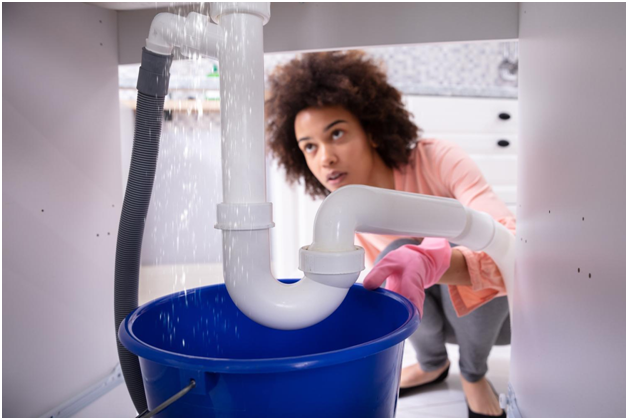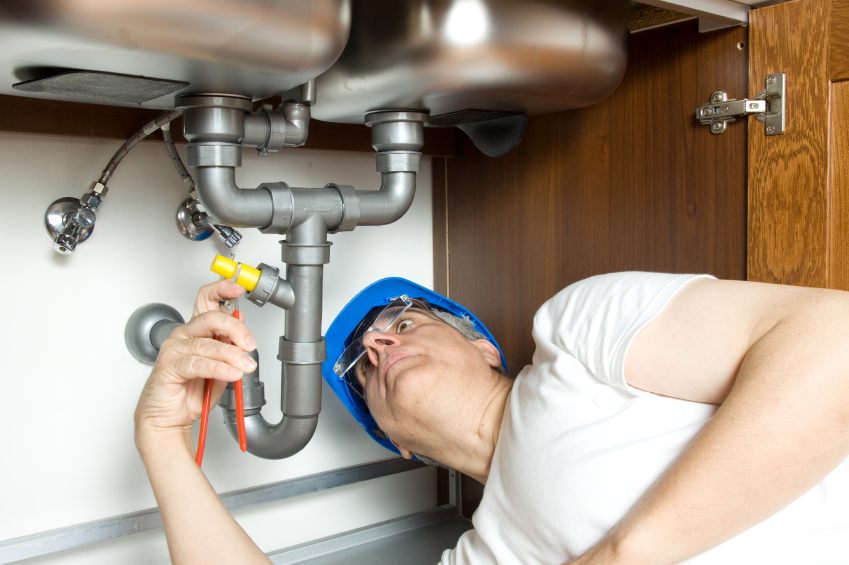Ways to Fix Emergency Plumbing with Quick Tips Until Help Arrives
Ways to Fix Emergency Plumbing with Quick Tips Until Help Arrives
Blog Article
What are your ideas on Expert Tips for Managing a Plumbing Emergency Until Help Arrives?

Pipes emergencies can strike any time, creating tension and potential damage to your home. Whether it's a ruptured pipeline, a clogged up drain, or a leaking faucet, knowing just how to take care of the circumstance till a specialist plumbing technician shows up can save you from further complications. This write-up gives necessary emergency pipes ideas to assist you mitigate damages and gain back control during a plumbing situation.
Shut off the Supply Of Water
The first step in any kind of plumbing emergency situation is to turn off the water supply. For local problems, such as a leaking faucet or commode, shut off the valve near the component. In the case of a major leakage or burst pipeline, find your home's main water shut-off shutoff and transform it off instantly. Knowing the area of these valves beforehand can conserve important time throughout an emergency situation.
Address Small Leakages with Short-term Solutions
Little leaks can promptly end up being substantial issues if left uncontrolled. Utilize these short-lived fixes up until specialist aid arrives:
While these solutions aren't long-term, they can aid reduce water loss and damages.
Unclog Drains Safely
A clogged up drain can be an irritating and messy problem. Below's exactly how to tackle it:
If these techniques do not function, avoid using extreme pressure, as it might worsen the obstruction.
Handle Overflowing Toilets
An overruning commode can cause instant turmoil. Below's what you need to do:
Turn off Your Hot Water Heater
In specific emergency situations, such as a ruptured pipeline, it's important to shut down your water heater. This avoids overheating or damage to the system when water stops streaming. Turn off the power supply to the water heater (electric or gas) and let it cool down to avoid potential dangers.
Briefly Stop a Burst Pipe
A burst pipe can lead to significant water damages in mins. To minimize the concern:
Call an expert plumbing instantly to address the trouble completely.
Deal With Frozen Pipes Very Carefully
In chillier climates, icy pipelines are a typical emergency. If you believe an icy pipeline:
Stop Further Damages
Taking quick action to decrease damage can conserve you money and time in the long run. Below's exactly how:
. Have an Emergency Situation Plumbing Package
Prepare a fundamental pipes emergency package to deal with small issues successfully. Your kit must include:
Having these tools accessible can make a considerable distinction in your ability to handle emergency situations.
Know When to Call a Professional.
While quick fixes can assist temporarily, specific pipes issues need immediate expert focus. Call a plumber if:.
Immediately speaking to a professional guarantees the concern is resolved correctly and avoids additional issues.
Verdict.
Plumbing emergencies can be frustrating, but with the best understanding and devices, you can take care of the scenario effectively until help shows up. By shutting off the water system, resolving tiny leaks, and using short-term repairs, you can reduce damages and maintain your home safe. Keep in mind, these ideas are short-lived remedies; constantly consult a licensed plumber to handle the root cause of the problem. Preparation and quick thinking are your best allies in any plumbing emergency.
8 Helpful Tips for Managing Plumbing Emergencies at Home
If your plumbing system hasn’t failed once, wait for it because almost everyone has a story to tell. Sometimes, it could be simple emergencies such as a leaking pipe, a blocked cistern, or even a big burst pipe. In situations like this, you need to have some handy tips to save you some money and from possible damages.
Take care of minor issues early.
Sometimes, you could have avoided an emergency by taking proactive measures while it was still early. Some major plumbing emergencies can be a result of an ignored minor issue. We recommend that you have items like plumbing tapes and other related items. A plumbing tape can allow you to manage minor leaks before the plumber arrives.
Cut off the water supply.
This tip is essential in almost any type of leakage problem. For problems like minor leakages in the toilet or kitchen, turn off the supply that takes water to the affected pipes. If the leakage is a major pipe, you must shut off the supply valve to the entire building. This will help you avoid flooding your home and neighbors if you share a flat.
Know your plumbing system
Folks typically move into a new apartment without understanding the water supply around the building. This can prove disastrous if a water emergency arises and the plumber is far away. The previous tip will prove useless if you don’t practice this one. More importantly, know where your water shut-off valve is located – you’ll need that knowledge to prevent potential home floods.
Have some common handy tools
There are lots of plumbing emergencies that you can handle without hiring a plumber. That’s why you must keep some tools available always. Some tools that you can use to fix simple plumbing emergencies easily include plumbing tapes, screwdrivers, thread seal tapes, plungers, pliers, tape measures, and rubber gloves.
Insulate your pipes from cold
You’ll save yourself from many plumbing expenses if you protect your water pipes from the cold. This is because of the harmful effects that cold weather can have on your pipes. During winter, your pipes can burst from being overly expected to freezing temperatures. So, make sure insulators are there to keep the pipes working correctly.
Avoid practices that will clog your toilet.
Many people indulge in practices that can damage the plumbing system of the entire building. One of these is when they use their toilet to dispose-off garbage. They flush all kinds of things, such as paper towels, bandages, hairs, female sanitary products, etc., down the toilet. This will block your toilet in the long run, incurring unnecessary expenditures. Dump such waste in the trash instead.
Check your dials regularly.
Sometimes, there could be leakages in your home without noticing them in time. So, constantly monitor your water meter dial. If the dial is reading when there is nobody using water, this is an indicator that there is leaking. Check for leaks immediately. Call a plumber as soon as possible if you can’t find any.
https://www.constructionplacements.com/8-helpful-tips-for-managing-plumbing-emergencies-at-home/

I am just very interested in Expert Tips for Emergency Plumbing Repairs and I really hope you liked the post. In case you enjoyed reading our page please remember to share it. Thank you so much for your time invested reading it.
Click Here Report this page